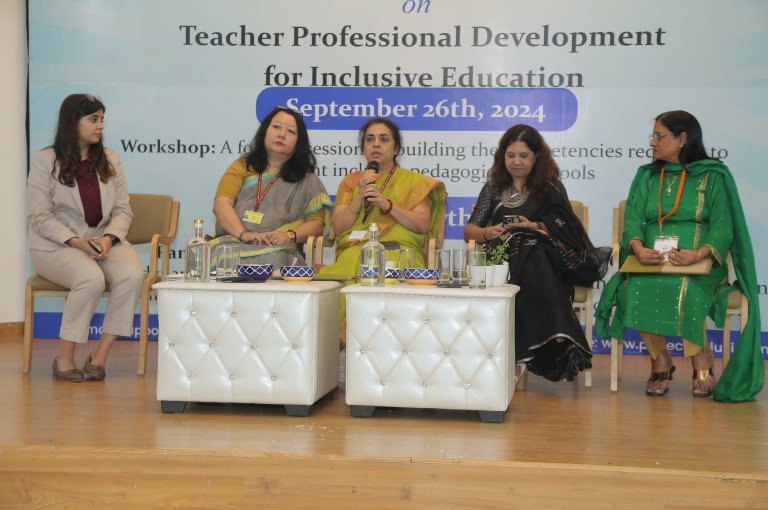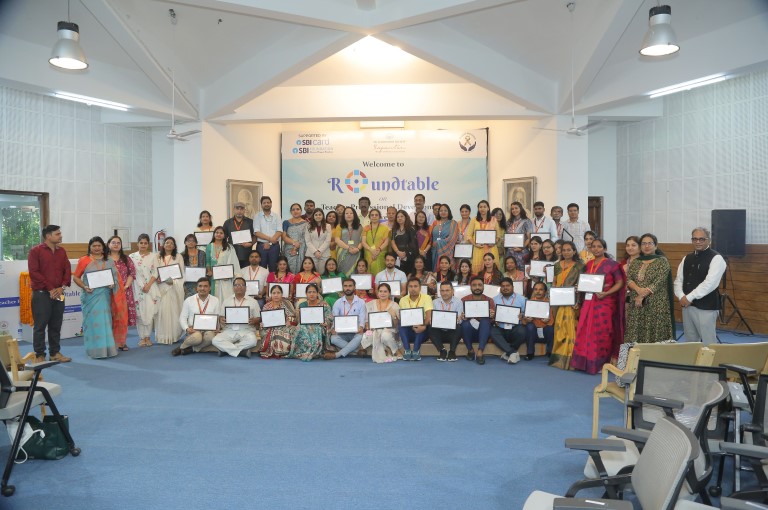Project Inclusion Empowers 3,60,000 Teachers for Inclusive Education Across India

New Delhi: In a groundbreaking initiative, Project Inclusion, a collaborative effort by the Sri Aurobindo Society (SAS) and SBI Foundation, has achieved significant progress toward inclusive education in India. Over the course of three years, the project has successfully trained 3,60,000 teachers nationwide, with a special focus on enabling educators to better support neurodiverse students. This initiative now extends to all 1,254 Kendriya Vidyalayas (KVs) across 36 states and Union Territories, creating classrooms where children with diverse learning needs can thrive.
Keep Reading
Empowering Teachers with Knowledge and Technology
Project Inclusion was designed in alignment with key education frameworks, including the National Education Policy (NEP), the Rights of Persons with Disabilities (RPWD) Act, 2016, and the Sustainable Development Goal (SDG 4) of achieving inclusive education by 2030. By providing specialized training to teachers and educators, the program aims to foster an educational environment where all students, regardless of their learning needs, can succeed.
The initiative focuses on capacity building, offering teachers access to advanced technology, expert knowledge, and crucial support systems. By utilizing artificial intelligence (AI) and Information Communication Technology (ICT), the project enables educators to identify and address the needs of neurodiverse students more effectively.

Overcoming Barriers to Inclusive Education
A two-day event, held on September 26-27, 2024, saw key policymakers, educators, and experts come together to discuss the challenges of creating an inclusive education ecosystem in India. Representatives from institutions such as NCERT, CBSE, NCTE, and several prestigious universities participated in discussions on how to best support students with diverse learning needs.
Major Barriers Identified:
– Lack of awareness and identification of neurodiverse students.
– Insufficient teacher training for engaging neurodiverse learners.
– Limited technological infrastructure in schools.
The interactive sessions explored solutions, such as developing an improved curriculum framework, enhancing teacher competencies, and implementing global best practices to build a more inclusive educational system.
Celebrating Milestones and Moving Forward
During the event, several key stakeholders were acknowledged for their contributions to Project Inclusion. Teachers, principals, and school officials who have undergone technical and behavioral training were honored for their dedication to making classrooms more inclusive.
Smt. Kesang Yangzom Sherpa, Member Secretary of the National Council for Teacher Education (NCTE), emphasized the need for continued teacher development and technology integration, stating, “We are committed to creating inclusive classrooms that support both students and teachers across India. By leveraging technology, we aim to reach the most remote areas of the country.”
Dr. Simmi Mahajan, Chief Program Officer of Project Inclusion, expressed excitement about the program’s success, saying, “Our goal is to bring systemic change and ensure every child has access to quality education. This initiative is a step towards making India’s schools more inclusive and empowering teachers to make a real difference in the lives of neurodiverse students.”
A Collaborative Vision for Inclusive Education
Radhika Purohit, from the SBI Foundation, highlighted the importance of equal opportunities for every child. She said, “At SBI Foundation, we believe in supporting those in need. Project Inclusion aligns with our mission to provide resources and opportunities to the disadvantaged, and we are proud to have scaled this program to reach teachers and students across the nation.”
As Project Inclusion moves forward, it aims to continue transforming the Indian education system, ensuring that children with diverse learning needs can experience true inclusivity in their educational journey.

Follow for more information.





